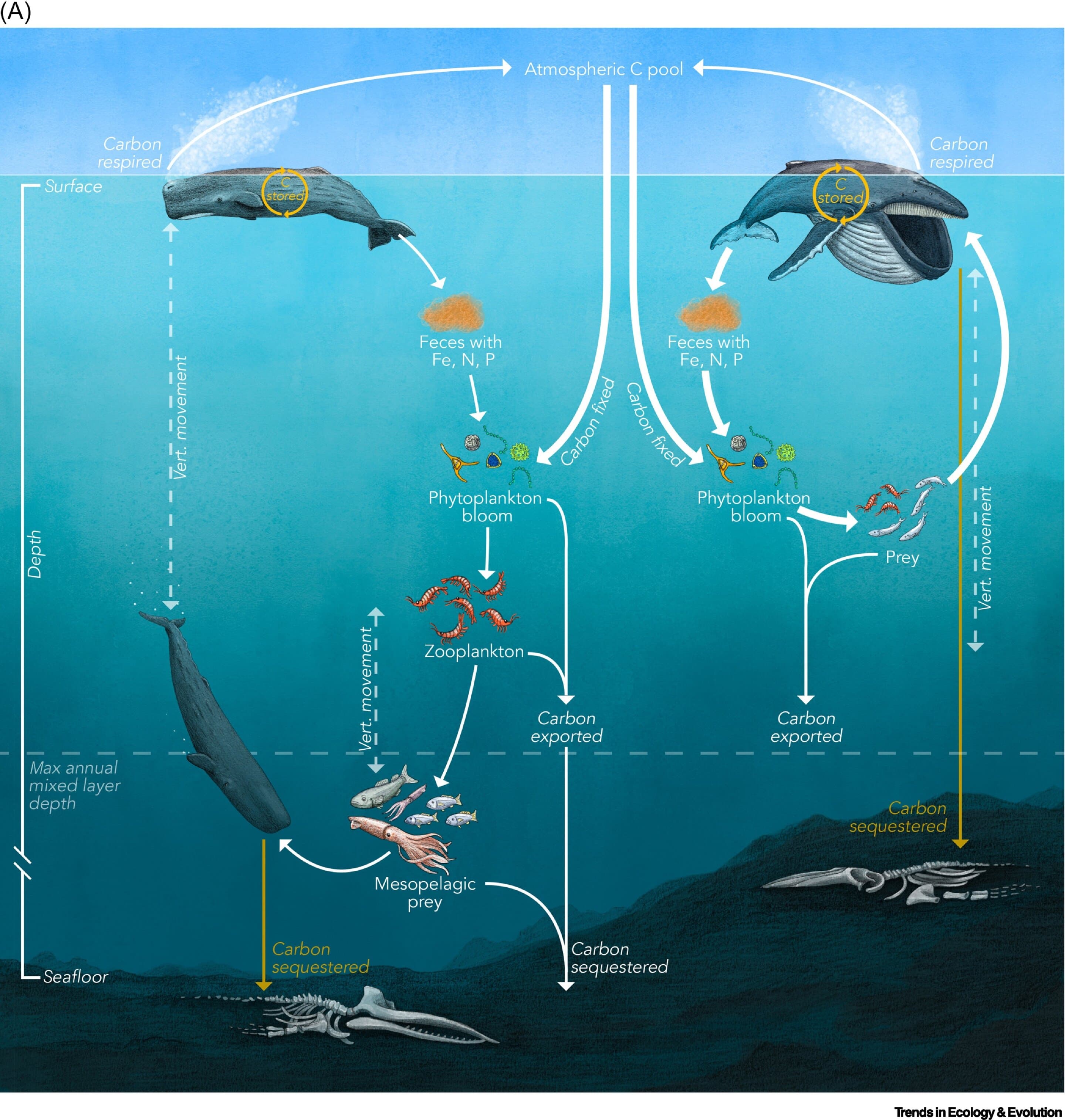Whale Populations Emerge as Understated Powerhouses in Ocean Carbon Sequestration, Recovery Underway

The critical role of natural carbon sinks, often overshadowed by discussions of fossil fuel emissions, is gaining renewed attention as a vital component in the fight against climate change. Among these, the ocean's capacity to absorb carbon dioxide is significantly bolstered by an unexpected ally: whale populations and the phenomenon known as "whale falls." As whale numbers recover, their contribution to long-term carbon sequestration is becoming increasingly recognized.
Matthew Chapman highlighted this often-understated aspect of climate change in a recent tweet, stating, > "It's actually quite understated how much climate change is driven not just by burning of fossil fuels, but destruction of natural CO2 sinks. Another is the loss of whale populations, as 'whale falls' pull a ton of carbon into the deep ocean (and whales are recovering now too.)." This perspective emphasizes that climate mitigation efforts must extend beyond emission reductions to include the protection and restoration of natural carbon removal processes.
Natural carbon sinks, such as forests, soils, and oceans, absorb more carbon from the atmosphere than they release. The ocean, the largest of these, plays a crucial role in regulating atmospheric CO2 levels. However, human activities like deforestation and industrial agriculture have significantly depleted terrestrial sinks, while marine ecosystems face threats from pollution and overexploitation.
The concept of "whale falls" describes the process where the carcasses of deceased whales sink to the ocean floor, transporting massive amounts of carbon to the deep sea. This organic carbon can remain sequestered for centuries, supporting unique deep-sea ecosystems. Scientists estimate that before commercial whaling, large whale populations annually sequestered tens of thousands to hundreds of thousands of tons of carbon into the deep ocean.
Historically, commercial whaling decimated whale populations, drastically reducing this natural carbon pump. However, conservation efforts have led to a gradual recovery of many whale species. As these majestic creatures return to healthier numbers, their collective impact on ocean carbon cycling is expected to increase, offering a valuable, albeit slow, natural mechanism for climate regulation. This natural recovery underscores the interconnectedness of biodiversity and climate stability.